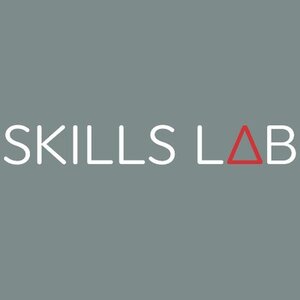This is a free micro credential course with competitive application. NSW Driver's Licence required. Preferences will be given to learners who live/work in the Western Parkland City area.
Skills Lab, a leader in practical automation training, has partnered with the NSW Government under their New Education and Training Model (NETM) to deliver a set of new industry-driven micro-credentials to the Western Parkland City area. These courses are fully funded for eligible applicants (must have NSW drivers licence). There are limited places available (max 10 students per class) and it is a competitive application process with preferences going to learners who live/work in the Western Parkland City area.
These micro credentials are delivered cyber-physically (i.e. remote online delivery with full time facilitation from an instructor) as a 1 week block (e.g. 9:30am-4:30pm Mon-Fri). Dates are available from now until the end of 2023. Please ensure you are able to attend the full week of training.
This training has learners connecting electronically to our automation training labs, where you will be using industry standard software and equipment to learn in a practical way (no death by PowerPoint!).
Learners who complete these micro-credentials will be issued a Skills Lab digital badge to recognise your achievement. These courses could also form part of a pathway into future accredited training.
The current courses we are enrolling for are;
Programming Methods for Modern Industrial Automation
In addition to industry-standard programming techniques, knowledge of edge devices, networking, and cyber security is becoming essential for programmers working with modern industrial automation. At the completion of this micro-credential, learners will be able to:
Understand the impact modern industrial automation systems have on organisational processes.
Understand the differences between OT and IT systems, how they communicate, and how to mitigate risks.
Program industrial control systems using advanced programming languages.
Connect and configure an edge device to send process data from the plant to a cloud-based system.
Create dashboards and query process data in order to extract meaningful information.
Fault find and troubleshoot all aspects of the control system architecture.
Electricians Working with Modern Industrial Automation
The industrial automation industry now requires electricians to understand the different hardware used in modern control systems, along with the ability to troubleshoot the software and the incoming and outgoing signals. After completing this micro-credential, learners will be able to:
Connect and configure control system hardware, such as PLCs, RTUs, radios, and edge gateways.
Understand industry-leading industrial communication protocols, including their benefits and limitations.
Install, maintain, and fault-find industrial automation hardware.
Fault-find and troubleshoot control system software.
Understand the value of utilising data and analytics to support predictive maintenance.
Digital Network Operations in Modern Automated Environments
The highly digital environment of modern industrial automation requires operators to have a greater understanding of modern Supervisory Control and Data Acquisition (SCADA) systems and other IIoT applications. At the completion of this micro-credential, learners will be able to:
Understand a modern industrial environment, what devices are on the network, their purpose, and how they communicate.
Connect and configure modern SCADA and IIoT systems.
Understand good practices about capturing errors and responding to anomalies.
Fault find/troubleshoot within network architecture.
Understand what is possible with digital twins and mixed reality in the workplace.
More details are available on the website.
I will stick around to answer any questions. I am a control systems engineer (electrical engineering background) who helped develop these courses and I am also leading some of the delivery. There are different target audiences for each class - I can assist in the comments if you are unsure which would suit you best.
![[NSW] Modern Industrial Automation Training - Free (NSW Driver's Licence Required) @ Skills Lab](https://files.ozbargain.com.au/n/44/786144.jpg?h=0bcd9329)

Very interesting, looks like a useful taster to complete before sitting through months of slower-paced TAFE content, or manufacturer-specific training. Would certainly be good for an OT-adjacent IT person.
I'll be on the lookout for availability in my state down the line, as I am unfortunately not a NSW resident.